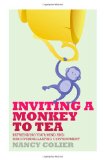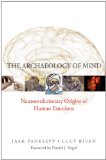Amazon.com’s Kindle Daily Deal for today (Monday 6/18/12) features five “top-rated books about the power of the human brain” for $1.99 each. [Amazon says “Individual Daily Deal titles may have additional territory restrictions, and not all deals are available in all territories.”]
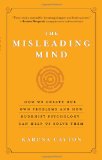
The Misleading Mind: How We Create Our Own Problems and How Buddhist Psychology Can Help Us Solve Them by Karuna Cayton
Book description from the publisher:
Buddhism asserts that we each have the potential to free ourselves from the prison of our problems. As practiced for more than twenty-six hundred years, the process involves working with, rather than against, our depression, anxiety, and compulsions. We do this by recognizing the habitual ways our minds perceive and react — the way they mislead. The lively exercises and inspiring real-world examples Cayton provides can help you transform intractable problems and neutralize suffering by cultivating a radically liberating self-understanding.
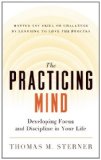
The Practicing Mind: Developing Focus and Discipline in Your Life by Thomas M. Sterner
Book description from the publisher:
Early life is all about trial-and-error practice. If we’d given up in the face of failure, repetition, and difficulty, we’d never have learned to walk, tie our shoes, or ride a bike. So why, as adults, do we often throw in the towel when at first we don’t succeed? Modern life’s technological speed, habitual multitasking, and promises of instant gratification don’t help. But in his study of how we learn (prompted by his experiences as a musician and adult newbie golfer), Thomas Sterner has found that we have also lost the principles of practice; the process of picking a goal and applying steady effort to reach it. The methods Sterner teaches show that practice done properly isn’t drudgery on the way to mastery but a fulfilling process of building focus, mind-calming clarity, and joy-filled effort in and of itself. The practicing mind savors the baby steps that lead to great strides.
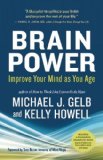
Brain Power: Improve Your Mind as You Age by Michael J. Gelb and Kelly Howell
Book description from the publisher:
Virtually everyone fears mental deterioration as they age. But in the past thirty years neuroscientists have discovered that the brain is actually designed to improve throughout life. How can you encourage this improvement? Brain Power shares practical, state-of-the-evidence answers in this inspiring, fun-to-read plan for action. The authors have interviewed physicians, gerontologists, and neuroscientists; studied the habits of men and women who epitomize healthy aging; and applied what they describe in their own lives. The resulting guidance — along with the accompanying downloadable Brain Sync audio program — can help you activate unused brain areas, tone mental muscles, and enliven every faculty.
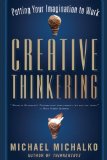
Creative Thinkering by Michael Michalko
Book description from the publisher:
Why isn’t everyone creative? Why doesn’t education foster more ingenuity? Why is expertise often the enemy of innovation? Bestselling creativity expert Michael Michalko shows that in every field of endeavor — from business and science to government, the arts, and even day-to-day life — natural creativity is limited by the prejudices of logic and the structures of accepted categories and concepts. Through step-by-step exercises, illustrated strategies, and inspiring real-world examples, he shows readers how to liberate their thinking and literally expand their imaginations by learning to synthesize dissimilar subjects, think paradoxically, and enlist the help of the subconscious mind. He also reveals the attitudes and approaches that diverse geniuses share — and anyone can emulate. Fascinating and fun, Michalko’s strategies facilitate the kind of lightbulb-moment thinking that changes lives — for the better.
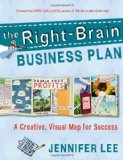
The Right-Brain Business Plan by Jennifer Lee
Book description from the publisher:
Millions of artists, entrepreneurs, crafters, and solopreneurs dream of making a living doing what they love. But turning their vision into a viable business plan can feel like trying to fit a square peg into a round hole. Jennifer Lee knows what it’s like to make the entrepreneurial leap — and how to do it successfully. The key is showing creative types how to use — rather than stifle — the imagination and intuition that make them creative in the first place. Lee’s illustrated, colorful worksheets and step-by-step instructions are playful yet practical, enabling readers to get down to the essential business of defining their vision and nailing down plans for funding, marketing, networking, and long-term strategy. Both budding and seasoned business owners will benefit from Lee’s wonderfully original approach.

